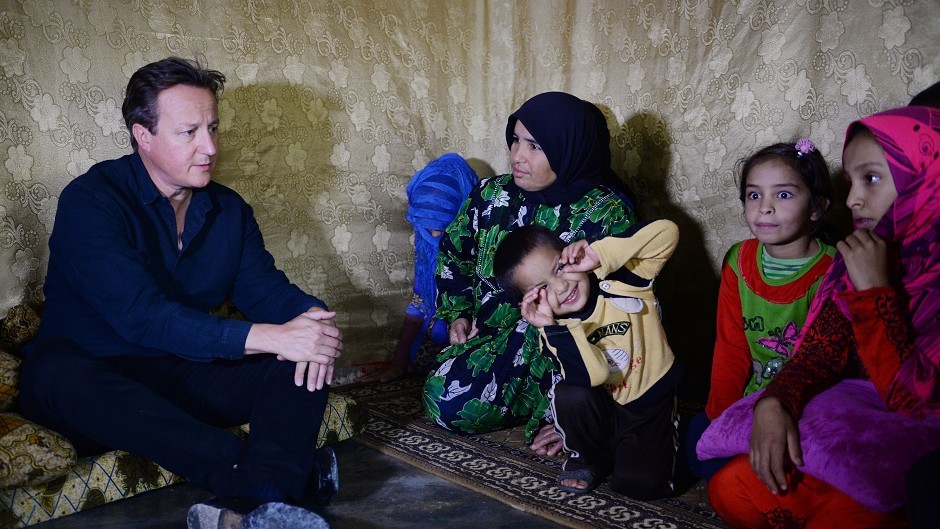Dozens of refugees fleeing war-torn Syria are being offered homes in the Highlands.
The council has agreed to take “up to 30 families” as part of a four-year resettlement programme – subject to the availability of housing.
Local authority insiders suggested last night that families would be housed in Caithness, where there was understood to be more free accommodation than elsewhere in the region.
The arrivals are expected in the New Year.
The move was widely welcomed, with council leader Margaret Davidson hailing the “genuine goodwill” of Highlanders.
However, some elected members suggested the welcome was “qualified” because about 10,000 people are already languishing on the area’s housing waiting list.
A series of meetings is continuing between the council, NHS Highland, police, charities and the Department of Work and Pensions to discuss relevant accommodation, employment, education and health issues.
Councillor Donnie Kerr, whose Inverness Central ward contains the most deprived communities in the north, said: “I’d give a qualified welcome, by which I mean there’s already considerable pressure on our housing services.
“Any extra resources available from the UK or Scottish government would be most welcome.”
Fellow Inverness member Norrie Donald said he would welcome people in need, but urged the governments to provide emergency aid to help facilitate their housing needs.
“We must address the region’s own housing issues,” he said.
The Scottish Government has pledged to accept at least 2,000 of the 20,000 refugees which the UK Government has agreed to take.
Aberdeen has already promised to help 100, while Aberdeenshire will take 50 families, and Argyll and Bute has agreed to accept 20.
Highland Council leader Margaret Davidson echoed her counterparts on other local authorities, pledging a commitment to an international mission to provide sanctuary.
“We are continuing to work with our key partners to ensure that we are in the best position possible to ensure a smooth transition for refugee families when they arrive,” she said.
“We are unlikely to receive the first refugees until early in the New Year and they will certainly need support in adjusting to a new life, a new culture and our Highland winter.”
Councillor Davidson said she was heartened by “the genuine goodwill” of Highlanders.
She added: “Many people here are very worried about the terrible situation in and around Syria and are naturally anxious to do what they can. It is a complex and difficult issue.
“However, the most effective way of helping refugees in the immediate term is to donate money to support charities such as Blythswood and the British Red Cross who provide help on the ground.”
Richard Laird, another Inverness Central councillor, said: “I understand, from information I gleaned last week, the plan is to house the refugees in Caithness where there is not the housing pressure we have in the rest of the Highlands.
“The response I’ve had from the public has been overwhelmingly positive. They’re keen that the Highlands does its bit to ease the refugee crisis and taking 30 families should not be onerous on the public services of the Highlands.
“A lot of individuals and community groups want to support what the council is doing and we’ll make sure there’s no pressure put on council services.”
A spokeswoman for the council said precise locations for housing refugees had not been decided and was “still subject to the confirmation of available housing.”
Liberal Democrat group leader David Alston said the council was “doing the right thing,” and doubted there was any conflict between accommodating refugees and the authority’s housing waiting list.
“It may well benefit the Highlands,” he said, “although the main point is to fulfil our duty that we have towards those who are refugees.”
